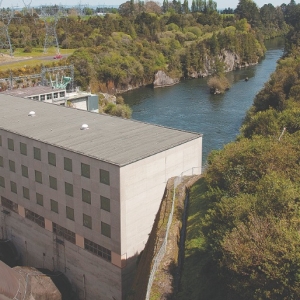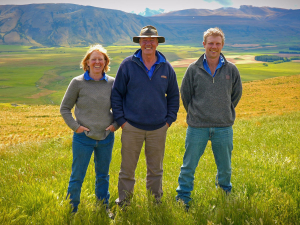An article in Dairy News April 30 by Mark Warminger, an asset manager, claims the policy will cost New Zealanders. He’s wrong. Federated Farmers spokesperson Anders Crofoot claims the policy is “suspicious”. I’m not sure where he gets that idea from.
Our proposal is about protecting New Zealanders from rampant profits in a monopolistic commodity that is currently controlled by an ineffective and unworkable electricity market. The Bradford reforms of the 1990s have proven, as with the unregulated finance markets, and an unregulated health and safety environment, to be an abject failure.
Labour, along with the Greens, believes a major change is required to ensure New Zealand electricity users – business and residential – have access to reliable and affordable electricity.
An Electricity Commission report revealed electricity companies made a $2 billion profit in 2008. That money came courtesy of consumers – such as pensioners who take to their beds early in winter because they can’t afford to keep their heaters on.
And yes, much of it went back to taxpayers through dividends to SOEs. But, to continue with the same faulty market when a large portion of generation capacity is to be sold to investors is to hand over monopolistic rights to a few select wealthy shareholders. It is highly likely those shares will end up in the hands of foreign investors and, once again, New Zealand businesses and consumers will be paying more than they should to bolster profits for foreign investors.
The rural and agricultural sectors are increasingly reliant on electricity for farm production, processing of raw materials and for other industry services. Any increase in cost will be borne by farmers and reduce their incomes.
Despite knowing the vast majority of its members will be beneficiaries of the new policy Federated Farmers has chosen to blatantly oppose the policy.
While asset managers and traders like Mark Warminger might have to forgo some opportunities under the proposal, Labour believes the provision of electricity is a core part of this country’s productive sectors’ infrastructure and should not be rorted for excess profits.
Labour also believed it was important to clearly notify the market and potential investors of plans to create one electricity purchaser for people who might be considering investing in the sale of shares in the SOEs. We did that. We were open and honest about a policy intended to benefit New Zealanders and every consumer of electricity, including farmers and rural business.
• Damien O’Connor is Labour’s primary industries spokesman.
















